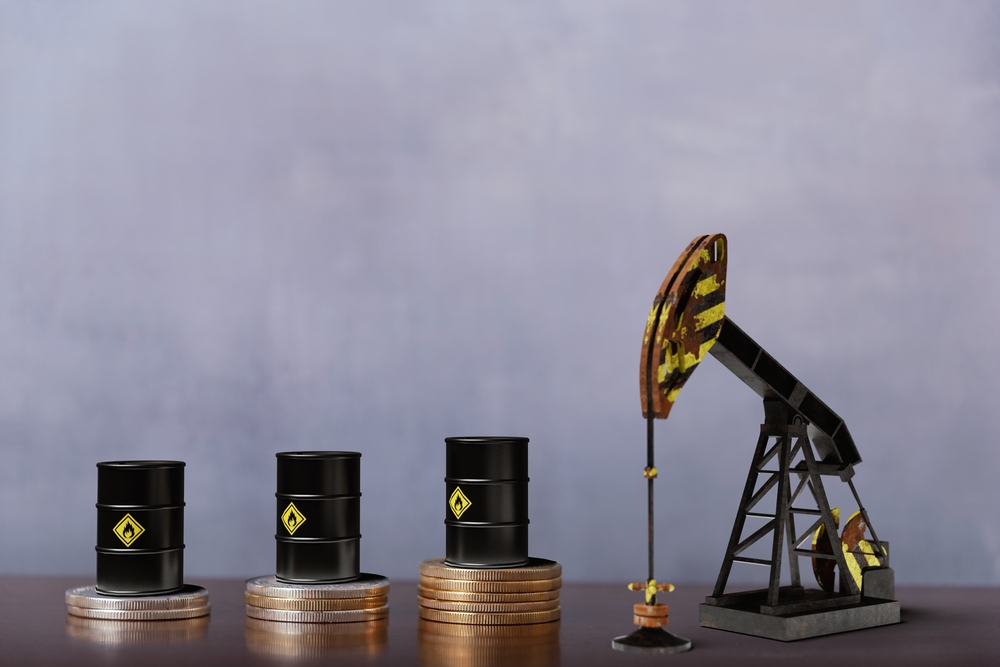If you invested in energy stocks in early 2022, you’re probably very happy right now.
Energy has been – by a mile – the best-performing sector this year.

Maybe even more impressive is the financial performance of energy companies (of course, as Alexander Green says, share prices eventually follow earnings, so we shouldn’t be too surprised by this correlation).
Based on the reports that have come in so far, earnings growth for the S&P 500 in the third quarter was relatively solid. But that’s all due to the energy sector, which is reporting earnings growth of 134%, according to FactSet.
Strip out energy, and you’ve got negative earnings growth for the quarter.
The chart below shows earnings growth for the S&P 500 for both the third quarter and calendar year (CY) 2022, with and without the energy sector.

Drill down, and you’ll be amazed by the performance of individual companies in the energy sector.
Both Exxon Mobil (NYSE: XOM) and Chevron (NYSE: CVX) beat consensus earnings estimates by 15%.
The question is, can this boom in energy stocks last? Or will these earnings performances and share prices revert to the mean – joining the rest of the S&P 500 in what has overall been a disappointing year for the stock market?
Put another way, should investors remain in energy stocks, or is it time to take profits and rotate to other sectors or asset classes?
After all, the primary driver behind the robust rise in energy stocks has been oil prices. And while the price of West Texas Intermediate crude oil is still up about 18% year to date and the price of Brent crude is up 20%, the prices of both have been retreating since mid-June.
You may have noticed this price decline at the pump. The average price of a gallon of gas in the U.S. has dropped from about $5 in mid-June to about $3.75 today.
And it’s very possible that we were in a recession in the first half of the year, as evidenced by two quarters of negative GDP growth.
The economy rebounded a bit in the third quarter, but the Federal Reserve is actively trying to slow the economy to tame runaway inflation.
The future for Europe looks even bleaker. While the U.S. is seeing slower-than-expected economic growth, Europe faces terrible inflation (worse than what the U.S. is seeing), an energy crisis driven by the unprovoked Russian invasion of Ukraine and its knock-on effects, and political turmoil in several countries – Italy in particular.
Economic contractions in these major energy-consuming regions would push global demand for oil down – and the price of crude oil with it.
Yet the war in Ukraine, coupled with unexpected policy moves by OPEC, is propping oil prices up – and will likely continue to do so.
And the price of liquefied natural gas (LNG) has soared to new records this year.
In fact, Alex Green recently sat down with bestselling author Bob Paff to discuss a massive opportunity in the energy market.
The energy crisis in Europe has become an outright disaster since Vladimir Putin cut off all gas supplies to Europe through the Nord Stream 1 pipeline.
Putin declared, “We will not supply gas, oil, coal, heating oil. We will not supply anything!”
European leaders are panicking. They’re mandating cold showers, halting factory production, requiring lower driving speeds on highways, and restricting the use of heat in offices and retail shops.
Investors are pouring out of European stocks…
And withdrawals from European funds just hit their highest level since the Brexit panic.
If Europe goes into a deep recession… the American stock market could be hit hard too.
But Alex believes Europe will actually come out of this situation in a better position than ever – thanks to one “relief” stock.
Go here to learn how to play this energy crisis.
Of course, oil prices are notoriously difficult to predict. Like other commodity prices, they depend on the constant push and pull of supply and demand.
But a robust supply of energy from all sources will be critical to economic development and prosperity going forward.
That means energy and energy-related stocks should continue to thrive as we gradually move from fossil fuels to natural gas to renewables.
Invest wisely,
Matt
